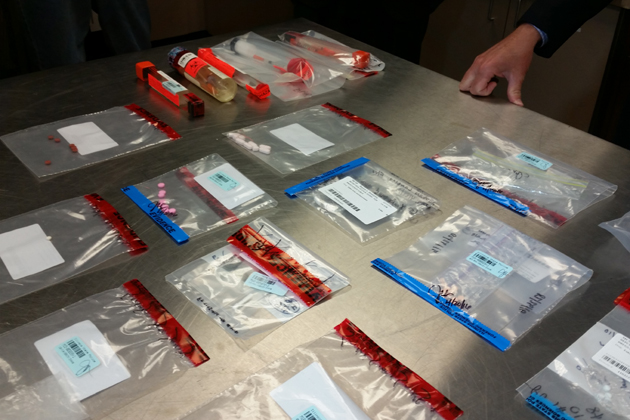
By Illinois Radio Network
SPRINGFIELD – Overdose deaths from opioids have seen an alarming increase in Illinois since 2008, and the Illinois Department of Public Health (DPH) believes it is vital to educate both the public and doctors about the epidemic to curb the problem.
Illinois had the third fastest-rising death rate from synthetic opioids in the nation, with overdoses rising by 120 percent from 2014 to 2015, according to the latest data released by the Centers for Disease Control (CDC). More people have died from opioid overdoses in Illinois in 2014 than from all gun-related causes — including homicide, suicide and accidental shooting — according to a statement given by the DPH.
Dr. Nirav Shah, director at DPH, said that an increasing amount of fentanyl is being found in street drugs.
“Data from our law enforcement colleagues nationally shows that the percentage of heroin that has been adulterated by these synthetic opioids has definitely gone up,” he said.
Overdose deaths in Illinois from opioids rose about 275 percent from 2008 to 2014, according to Shah. He is working with communities, faith-based groups, schools and law enforcement officials to try to halt the rise.
“If we’re really going to make a dent in the way this epidemic has taken shape, we have to start looking at it like a disease, a brain disease, and not some sort of moral failure,” Shah said.
Shah added that the epidemic is getting worse with “the very real human toll that comes from it, the costs that are associated from a fiscal point also grow.”
According to the CDC’s new data, most of Illinois’ rising death rate from opioid overdoses comes from illegal drugs like heroin or the synthetic opiate fentanyl, which is now being produced on the black market. When they mix, it can be deadly.
CDC Director Dr. Tom Frieden said state public health officials need help.
“Urgent action is needed to help healthcare providers treat pain safely and treat opioid use disorder effectively, support law enforcement strategies to reduce the availability of illicit opiates
and support states to develop and implement programs that can save lives,” Frieden said in a statement.
The annual societal cost nationwide of opioid abuse is estimated at $55 billion, according to the Center for National Drug Control Policy.






